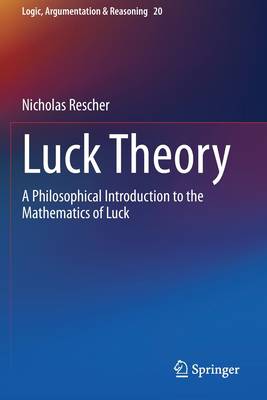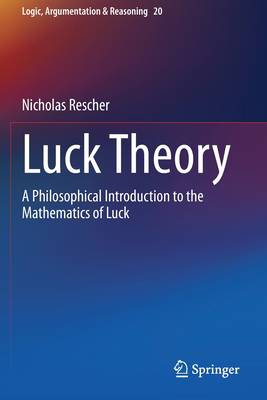
En raison d'une grêve chez bpost, votre commande pourrait être retardée. Vous avez besoin d’un livre rapidement ? Nos magasins vous accueillent à bras ouverts !
- Retrait gratuit dans votre magasin Club
- 7.000.000 titres dans notre catalogue
- Payer en toute sécurité
- Toujours un magasin près de chez vous
En raison de la grêve chez bpost, votre commande pourrait être retardée. Vous avez besoin d’un livre rapidement ? Nos magasins vous accueillent à bras ouverts !
- Retrait gratuit dans votre magasin Club
- 7.000.0000 titres dans notre catalogue
- Payer en toute sécurité
- Toujours un magasin près de chez vous
79,45 €
+ 158 points
Format
Description
This book is an original--the first-ever treatment of the mathematics of Luck. Setting out from the principle that luck can be measured by the gap between reasonable expectation and eventual realization, the book develops step-by-step a mathematical theory that accommodates the entire range of our pre-systematic understanding of the way in which luck functions in human affairs. In so moving from explanatory exposition to mathematical treatment, the book provides a clear and accessible account of the way in which luck assessment enters into the calculations of rational decision theory.
Spécifications
Parties prenantes
- Auteur(s) :
- Editeur:
Contenu
- Nombre de pages :
- 90
- Langue:
- Anglais
- Collection :
- Tome:
- n° 20
Caractéristiques
- EAN:
- 9783030637828
- Date de parution :
- 23-01-22
- Format:
- Livre broché
- Format numérique:
- Trade paperback (VS)
- Dimensions :
- 156 mm x 234 mm
- Poids :
- 185 g

Les avis
Nous publions uniquement les avis qui respectent les conditions requises. Consultez nos conditions pour les avis.






